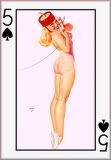Iraqi judge seeks arrest of British soldiers
Staff and agencies
24 September, 2005
By Abdel-Razzak Hameed 5 minutes ago
BASRA, Iraq - An Iraqi judge has issued arrest warrants for two British soldiers freed after a British raid in Basra, an Iraqi lawyer said on Saturday, and thousands rallied in the southern city in support of a new constitution.
Judge Raghib Hassan issued the warrants on Thursday, accusing the men of killing an Iraqi policeman and wounding another, carrying unlicensed weapons and holding false identification, Kassim al-Sabti, the head of the lawyers‘ syndicate in Basra told Reuters.
Britain‘s Ministry of Defense said the warrants had no legal basis.
"All British troops in Iraq come under the jurisdiction of Britain," a defense spokesman said in London.
British forces mounted a bid to free the two soldiers on Monday, but were initially repelled as a crowd of angry Iraqis petrol-bombed an armoured vehicle.
Later British forces returned and armoured vehicles broke down the walls of the jail. The two were later freed from a private house nearby, where they were believed to have been held by a local militia.
Basra authorities said British troops killed two Iraqi police during the raid.
Monday‘s flare-up has harmed the relationship British forces were able to build with local Iraqis in and around Basra, a relatively stable city compared with other parts of Iraq.
Basra‘s governing council has suspended all cooperation with the British until they apologize, guarantee that similar actions are not taken again and provide compensation for damage inflicted during the operation.
Two investigations into the events leading up to the rescue were under way by Iraqi authorities and the British military.
Basra is the largest city in majority-Shi‘ite southern Iraq, and thousands of citizens rallied on Saturday in support of a proposed new Iraqi constitution which many Shi‘ites hope will boost their status in the fragmented country.
The rally followed calls last week by Iraq‘s most senior Shi‘ite cleric, Ayatollah Ali al-Sistani, to vote in favor of the charter, which will be put to a referendum on Oct 15.
Shi‘ites were suppressed under Saddam Hussein , who banned major religious ceremonies at the holy cities of Najaf and Kerbala and crushed a Shi‘ite revolt in 1991. Such ceremonies have drawn crowds of a million or more since he was ousted.
Iraq‘s U.S.-backed government is dominated by southern Shi‘ites and Kurds from the north -- to the dismay of the minority Sunni Arabs, who make up just 20 percent of the population but have dominated Iraq for decades.
Their influence has all but disappeared since Saddam fell. Many Sunnis fear if the constitution is approved at the referendum, it will formalise their reduced role by giving Shi‘ites broad autonomy in line with that already enjoyed by Kurds -- including control over oil revenues.
The government and its U.S. military backers face a Sunni insurgency across the country, in which bombings and shootings kill police, soldiers and civilians on a daily basis.
On Saturday morning a suicide car bomb exploded near an Iraqi army checkpoint in Baghdad, killing two Iraqi soldiers and wounding five other people, police said.
The attack, near a restaurant in the capital‘s Karrada district, destroyed several cars and sent a plume of smoke into the air.
Three of the wounded were soldiers and two civilians, police said. Iraqi police and the U.S. military sealed off the area.
The blast followed an attack on Friday in which a suicide bomber blew himself up at a bus station, killing at least five and wounding 17, police said.
Separately, a U.S. soldier was killed by a roadside bomb southeast of Baghdad, the U.S. military said on Saturday.
The death raises to 1,911 the number of U.S. troops to have died in Iraq since the start of the war.
Police said U.S. troops opened fire on a passenger car in Kerbala on Saturday, killing a family of four.
(Additional reporting by Aseel Kami in Baghdad and Matthew Jones in London)link
24 September, 2005
By Abdel-Razzak Hameed 5 minutes ago
BASRA, Iraq - An Iraqi judge has issued arrest warrants for two British soldiers freed after a British raid in Basra, an Iraqi lawyer said on Saturday, and thousands rallied in the southern city in support of a new constitution.
Judge Raghib Hassan issued the warrants on Thursday, accusing the men of killing an Iraqi policeman and wounding another, carrying unlicensed weapons and holding false identification, Kassim al-Sabti, the head of the lawyers‘ syndicate in Basra told Reuters.
Britain‘s Ministry of Defense said the warrants had no legal basis.
"All British troops in Iraq come under the jurisdiction of Britain," a defense spokesman said in London.
British forces mounted a bid to free the two soldiers on Monday, but were initially repelled as a crowd of angry Iraqis petrol-bombed an armoured vehicle.
Later British forces returned and armoured vehicles broke down the walls of the jail. The two were later freed from a private house nearby, where they were believed to have been held by a local militia.
Basra authorities said British troops killed two Iraqi police during the raid.
Monday‘s flare-up has harmed the relationship British forces were able to build with local Iraqis in and around Basra, a relatively stable city compared with other parts of Iraq.
Basra‘s governing council has suspended all cooperation with the British until they apologize, guarantee that similar actions are not taken again and provide compensation for damage inflicted during the operation.
Two investigations into the events leading up to the rescue were under way by Iraqi authorities and the British military.
Basra is the largest city in majority-Shi‘ite southern Iraq, and thousands of citizens rallied on Saturday in support of a proposed new Iraqi constitution which many Shi‘ites hope will boost their status in the fragmented country.
The rally followed calls last week by Iraq‘s most senior Shi‘ite cleric, Ayatollah Ali al-Sistani, to vote in favor of the charter, which will be put to a referendum on Oct 15.
Shi‘ites were suppressed under Saddam Hussein , who banned major religious ceremonies at the holy cities of Najaf and Kerbala and crushed a Shi‘ite revolt in 1991. Such ceremonies have drawn crowds of a million or more since he was ousted.
Iraq‘s U.S.-backed government is dominated by southern Shi‘ites and Kurds from the north -- to the dismay of the minority Sunni Arabs, who make up just 20 percent of the population but have dominated Iraq for decades.
Their influence has all but disappeared since Saddam fell. Many Sunnis fear if the constitution is approved at the referendum, it will formalise their reduced role by giving Shi‘ites broad autonomy in line with that already enjoyed by Kurds -- including control over oil revenues.
The government and its U.S. military backers face a Sunni insurgency across the country, in which bombings and shootings kill police, soldiers and civilians on a daily basis.
On Saturday morning a suicide car bomb exploded near an Iraqi army checkpoint in Baghdad, killing two Iraqi soldiers and wounding five other people, police said.
The attack, near a restaurant in the capital‘s Karrada district, destroyed several cars and sent a plume of smoke into the air.
Three of the wounded were soldiers and two civilians, police said. Iraqi police and the U.S. military sealed off the area.
The blast followed an attack on Friday in which a suicide bomber blew himself up at a bus station, killing at least five and wounding 17, police said.
Separately, a U.S. soldier was killed by a roadside bomb southeast of Baghdad, the U.S. military said on Saturday.
The death raises to 1,911 the number of U.S. troops to have died in Iraq since the start of the war.
Police said U.S. troops opened fire on a passenger car in Kerbala on Saturday, killing a family of four.
(Additional reporting by Aseel Kami in Baghdad and Matthew Jones in London)link



